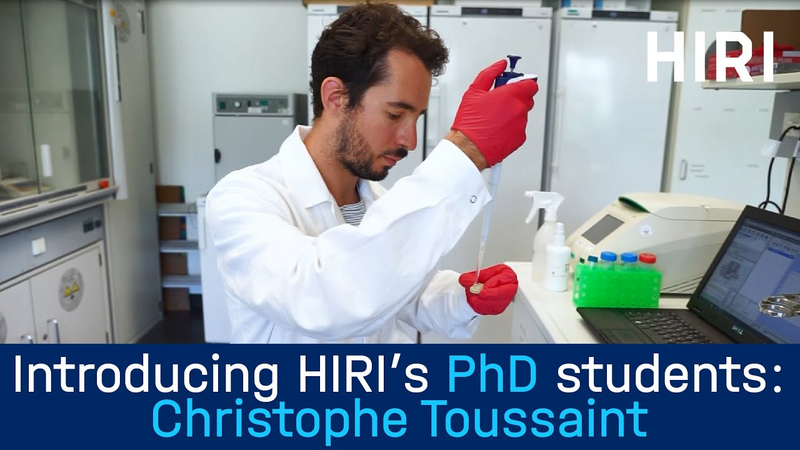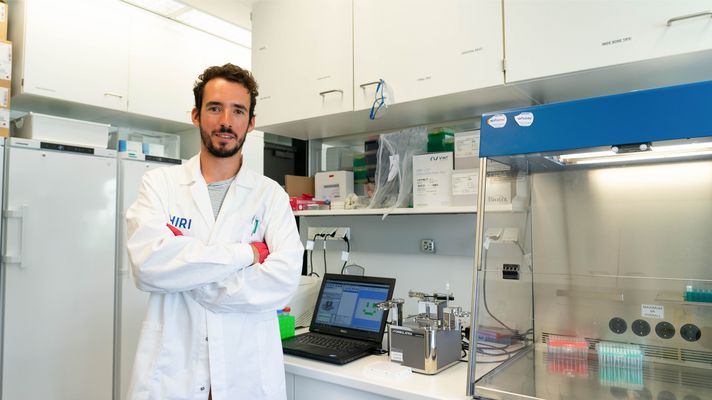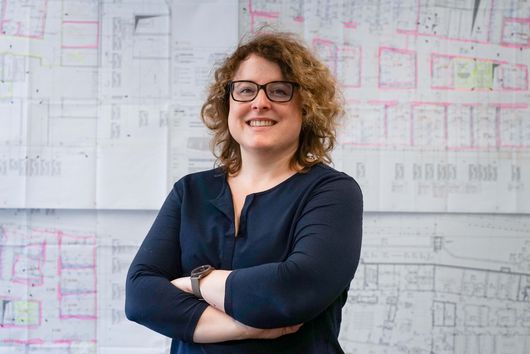
Science without borders
French-born Christophe Toussaint was one of the first participants to join the HIRI graduate training program “RNA & Infection”. He has been working on the interactions between pathogens and their hosts at the institute since 2019. In science, crossing borders is essential.
„I have always been very curious, especially about biology,“ says Christophe. His interest in this subject dates back to his childhood, perhaps because his mother is a nurse. „Biology aims to understand how life works in general. That is incredibly exciting. Even if you only focus on a small fraction, which in my case involves infections,” the HIRI PhD student continues. He has remained committed to this line of research until today.
Christophe has crossed several (national) borders for science: He did his undergraduate studies in Strasbourg, France. At a research institute in Boston, USA, he did his MSc. “I worked with many international colleagues and was able to discover the country together with them,” he explains.
Now, Christophe lives in Würzburg and conducts research at the HIRI. For him, the initial rotation phase was a major benefit of the HIRI graduate program. Prospective students do not apply for a specific lab and a predetermined topic, as is the case with other programs. Instead, successful applicants are first exposed to three different laboratories at HIRI. During this rotation phase, HIRI’s research groups compete for the PhD students before they choose a lab. “I was looking for a lab where I could do some kind of trial period. I wanted to get to know the group and their way of working before deciding on a topic and lab. Thus, HIRI's graduate training program was perfect for me.“
In the end, Christophe opted for Emmanuel Saliba's lab: “Originally, I wanted to focus on antimicrobial substances and the genetic scissors CRISPR. However, when I worked in the Saliba lab, I became interested in single-cell analysis. This meant combining work in the wet lab with bioinformatics—and that was exactly what I was looking for.“ Now, he is studying the interaction between macrophages, certain innate immune cells, and Salmonella, more specifically Salmonella enterica Typhimurium, at the single cell level. “I am investigating how macrophages respond to the presence of Salmonella,” he explains in brief.
Rotating to find suitable research
Christophe recommends that prospective students with an interest in the HIRI graduate program always keep an open mind, which includes spending time in labs with different research foci: „That way, you get a good overview of the science at the institute. Also, you can come up with really exciting PhD topics that combine the expertise of several labs,” he describes the opportunities the rotation period offers. Discussions with Saliba and Chase Beisel, HIRI principal investigator and CRISPR expert, inspired him to combine CRISPR technologies and single-cell analysis: “I definitely plan to work with Chase and his group at some point.” For groundbreaking research, crossing (laboratory) borders is essential.
When it comes to Würzburg, Christophe also has some recommendations: “Newcomers should definitely take a look at the fortress and the Residence. Especially the insides of the latter are really impressive.“ For his part, he enjoys spending time with friends, going for a run or bouldering. According to Christophe, another advantage of the city is its central location: “Würzburg is well connected. I can easily visit friends in France or Switzerland or take a trip to Bamberg.“
Christophe will work towards his doctorate for another year. After that, he wants to gain more research experience abroad before returning to France: “I don't know yet whether I will work in academia or in industry. I will stay open-minded and see what opportunities come up. But I am already certain about one thing: I will stay in science.”












